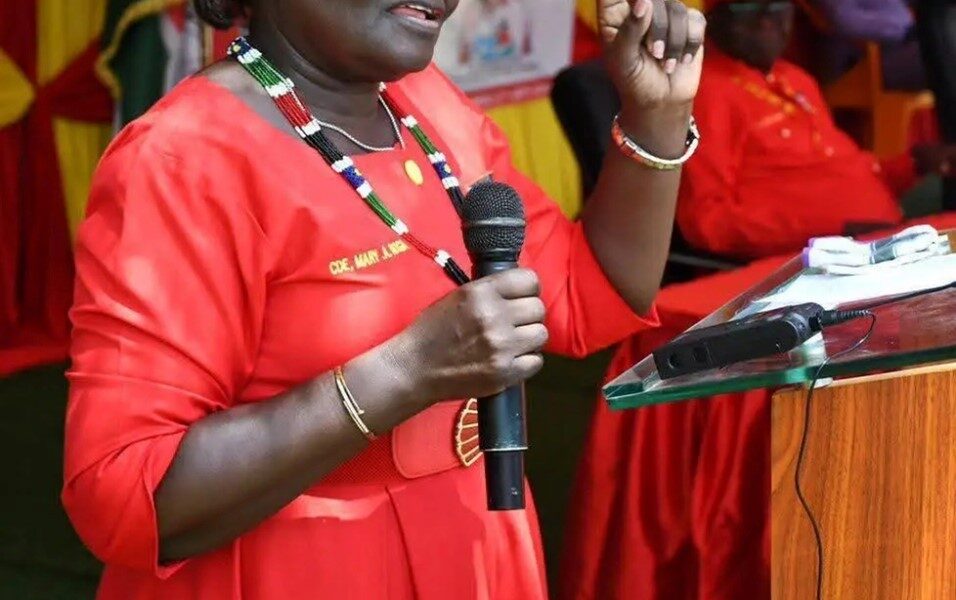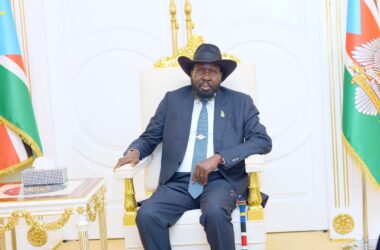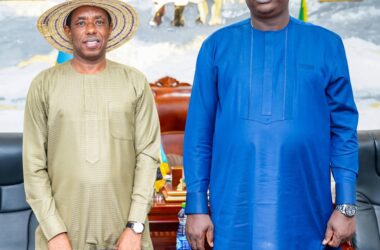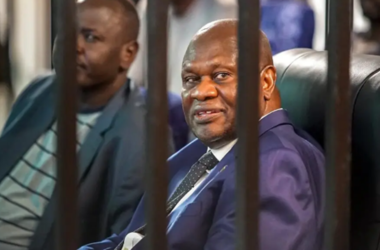By Kei Emmanuel Duku
Top leaders of the ruling Sudan People’s Liberation Movement (SPLM) have called on the newly sworn-in Upper Nile State Governor, Jacob Dollar Ruot, to prioritize unity, peace, and stability in the volatile region.
Governor Dollar, who is also the new SPLM Chairperson for the state, was officially sworn into office this week by SPLM Second Deputy Chairperson Gen. Mary Apai Ayiga during a ceremony at the SPLM House in Juba.
Addressing the event on behalf of the SPLM Chairman and President of the Republic, H.E. Gen. Salva Kiir Mayardit, Cde. Mary Apai hailed Governor Dollar’s selection as a “well-deserved” appointment, describing it as a clear mark of confidence and trust from the party’s supreme leadership.
In an official statement posted on the social media page, the Second Deputy Chairperson issued a strong mandate to the new state leader, stressing the need for inclusive and humble governance.
“This is a serious call to serve. Take humility as a crown upon your head and lead as a humble servant to all the communities of Upper Nile State, without favoritism or fear,” Mary Apai declared.
She pressed the new chairperson to commit to unity, peace, stability, and development, aligning his focus with the SPLM’s vision of inclusive leadership and national progress.
“You must unite the people of Upper Nile and ease their suffering. Engage in dialogue with all, exercise patience, and handle the responsibilities entrusted to you with dedication,” she added.
Simon Kon, the SPLM’s Third Deputy Chairperson, reminded Governor Dollar of the gravity of his role, emphasizing that it is an extension of the president’s mission and must be approached with utmost seriousness and commitment.
“Use this position to unite the people of Upper Nile,” Simon Kon asserted.
Cde. Kon also used the occasion to reaffirm the SPLM’s preparedness for the 2026 General Elections, stating the party is ready to relieve citizens from the “burden of the costly Revitalized Transitional Government.”
Meanwhile, Prof. Paul Logali Jumi, the SPLM Secretary-General, characterized the swearing-in as a renewal of the party’s collective commitment to peace, progress, and good governance.
“This event symbolizes our shared dedication to competence, visionary leadership, and the strengthening of state institutions. As we approach the upcoming elections, the party stands firm in ensuring a fair and peaceful democratic process,” Prof. Logali stated.
In his acceptance speech, Governor Dollar expressed gratitude to President Kiir and the party’s leadership for their trust. He pledged to prioritize peace, security, reconciliation, youth empowerment, and the return of refugees and internally displaced persons (IDPs).
“I call upon all who may have opposed my appointment to join hands in advancing the vision and mission of the SPLM for the good of our people and our nation,” Governor Dollar concluded.
The ceremony was well-attended by senior SPLM officials, including former Upper Nile State government leaders, members of the Political Bureau and National Liberation Council, national and state MPs, and women leaders from across South Sudan.
The appointment and swearing-in of a new SPLM Chairperson for Upper Nile State is highly significant within South Sudan’s complex political landscape. Upper Nile State has historically been a volatile area, marked by severe inter-communal violence and deep political factionalism, particularly between forces allied with the government and various opposition groups. The state is also strategically vital due to its oil resources.
The forceful calls for unity, peace, and stability by the top SPLM leadership underscore the persistent challenges in implementing the Revitalized Agreement on the Resolution of the Conflict in the Republic of South Sudan (R-ARCSS).
Furthermore, the party is keen to project a unified and capable front as the country moves closer to the anticipated 2026 General Elections. Governor Dollar’s focus on reconciliation and the return of IDPs directly addresses the critical humanitarian and security crises dominating the region.




